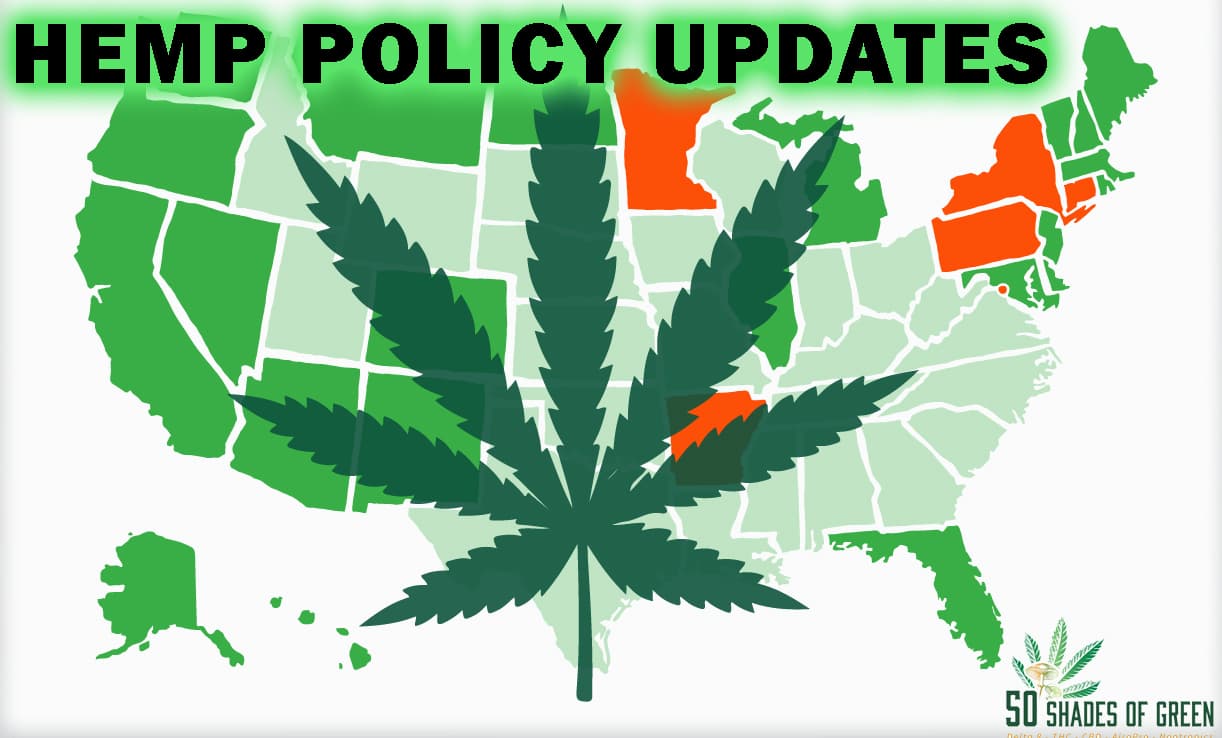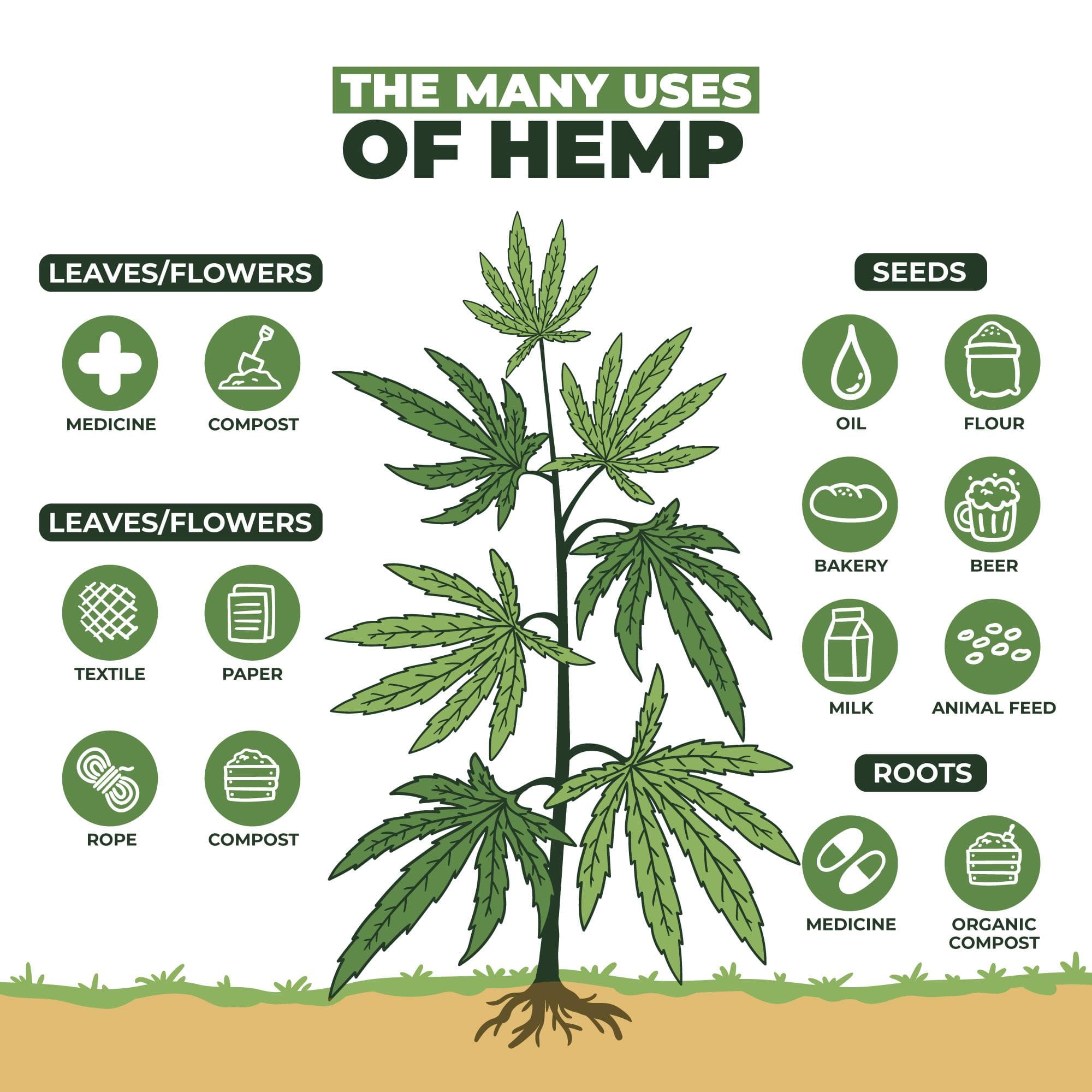Hemp Policy Item Tabled Amid Concerns at Meeting of U.S. Ag Regulators

The 2022 National Association of State Departments of Agriculture meeting is taking place this week in Saratoga Springs, New York. The meeting draws a crowd of state commissioners, secretaries and directors of agriculture to focus on policy solutions to some of the country’s most vexing agriculture issues. The group also votes on policy proposals, which then guide the group’s advocacy at the federal level.
Hemp Policies Need Lab Testing
Federal officials also participate. This year, for example, Robert Califf, Commissioner of the U.S. Food and Drug Administration, spoke, as did Leslie Yang, Deputy Assistant United States Trade Representative for Agricultural Affairs.
Since the passage of the 2018 Farm Bill, which legalized hemp at the federal level, hemp has increasingly become a topic of discussion at NASDA meetings. Hemp is defined as cannabis plants with .3% THC or less.
Each year, NASDA also publishes a Policy Book ahead of the meeting to outline ag leaders’ hemp priorities.
NASDA’s Plant Agriculture & Pesticide Regulation committee tabled a hemp-related action item after Keith Rogers, chief of staff for the Kentucky Department of Agriculture, raised concerns.
“These changes,” the Policy Book noted, “will enable fiber and grain producers to be exempt from both background checks and THC testing. Farmers would sign a declaration that they will only harvest grain/fiber hemp, continue to be permitted, face severe consequences for intentional violations, and be required to have a visual inspection.” On 50 Shades of Green, we’ve covered the vital importance of third-party lab testing hemp products such as Delta 8 THC to make sure it’s pure.
Rogers stood in objection because staffers at the state Department of Agriculture are currently devoting time to court cases where “producers are using the hemp program to grow marijuana.”
RELATED: Delta 8 THC & Hemp Products Legal Status Challenged By States
“When you look at the definition of hemp, and you have to do a THC test to determine whether it’s hemp or marijuana, to exempt fiber or grain simply doesn’t make sense,” Rogers said. “In Kentucky, we do not have recreational marijuana or medical marijuana. And so for a state like Kentucky, this really puts a severe issue front and center for us where you would have exemptions and no testing other than the individual certifying that they’re growing grain and fiber.”
Rogers moved that the item be tabled, and suggested that he would work with other state agriculture regulators on hemp policy ahead of the 2023 Farm Bill. (Read 50 Shades of Green past articles covering hemp and the 2023 Farm Bill priorities.)
“This really opens up a gray area that we don’t believe is appropriate for national policy,” Rogers said.
North Dakota Agriculture Commissioner Doug Goehring suggested the formation of a small workgroup to hammer out hemp-specific policies and called for background checks when it comes to hemp-related ag.
“This is a little dangerous to go down this road. I need background checks because we’ve already caught some culprits that have tried to get into the program,” Goehring said. “And I believe they might have done some harm to the reputation of the program and to the farmers and the good intentions that are out there.”
Enhance Hemp Industry Competition
One policy amendment that NASDA’s Marketing and International Trade committee voted in favor of was regarding the U.S. Department of Agriculture’s Specialty Crop Block Grant Program, which seeks to “enhance the competitiveness of specialty crops.” Hemp is currently not considered a specialty crop by the USDA. The NASDA policy amendment deleted language that supported “the dual designation for hemp as a specialty crop based on the manner and purpose for which it is grown” and that supported the expansion of the grant eligibility to include hemp crops that have horticultural uses. Members from Idaho and California submitted the policy amendment.
Why? The withdrawal of support for this “designation for hemp as a specialty crop” came down to funding available for the Specialty Crop Block Grant Program.
“We want to see the hemp industry thrive. First, we must secure an increase in funding for the Specialty Crop Block Grant Program, ensuring additional resources will be available to support hemp farmers,” NASDA’s 2021-22 President Richard Ball said in a statement Thursday. “NASDA will continue to advocate for the advancement of all agriculture, including the hemp industry.”
RELATED: Is Delta 8 Legal In Your State 2022?
A common confounding factor when it came to hemp policy discussions at the NASDA meeting was THC. And, THC content has been a thorn in the backside of many hemp farmers for years. That pain is kicked up to agriculture regulators who must figure out how to deal with “hot hemp,” or hemp that has tested positive for more than the threshold of allowable THC. These rules vary from state to state.
NASDA members support a 1% THC limit for hemp, and also “the development of uniform standards for field sampling and tetrahydrocannabinol (THC) content testing,” according to a previous policy statement.
NASDA released policy statements ahead of its Winter Policy Conference this past February, including one that highlighted how a “model” law on hemp could help regulators do their jobs better.
“NASDA supports consistent model legislation to assist state legislatures in their efforts to enact laws permitting hemp production within their jurisdictions in accordance with the 2018 Farm Bill, while also permitting state legislatures to consider the needs and resources of their individual state when structuring their individual state plans,” the statement noted, as Cannabis Wire reported at the time.
Hemps Higher-THC Sibling Absent from Policy
While state ag regulators are sometimes in the position of overseeing cannabis, in addition to hemp, hemp’s higher-THC cousin is again absent from all materials. It’s also worth noting that Ball, who also regulates agriculture in New York, is hosting this year’s meeting as New York cannabis regulators are working furiously to launch the state’s adult-use cannabis market.
“NASDA is a member-led organization and follows a formal policymaking process. At this time, NASDA members have not introduced cannabis policy for consideration,” NASDA spokesperson Sarah Grace Fowler told Cannabis Wire.
Editor’s note: This story was updated to include Ball’s statement on Thursday, and to clarify NASDA’s vote regarding the Specialty Crop Block Grant Program.
Credit: Cannabis Net






